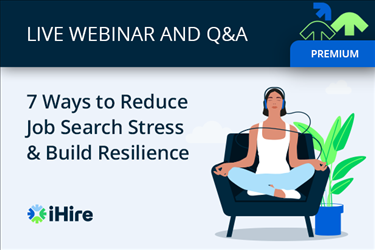- Job Seeker Resources
- |
- Last Updated: June 14, 2023

Soft Skills 101: Problem-Solving
Problem-solving has always been essential to the workplace, but in the current recruitment market, more and more employers are looking for these types of soft skills. This means it's critical to demonstrate an ability to problem-solve during your job search to stand out from other candidates.
Keep reading to learn why problem-solving skills are so important and how you can showcase them throughout the hiring process.
Why Are Problem-Solving Skills Important to Employers?
Problem-solving skills help you identify roadblocks and develop creative solutions naturally, allowing you to view a challenge as an opportunity rather than a crisis. These skills are significant to employers and hiring managers, especially amid ongoing industry shifts that leave the future uncertain. With so many changes, specific hard skills may soon become obsolete, so soft skills demonstrating the ability to adapt to new situations and problems are now a higher priority.
Furthermore, employees with tangible problem-solving skills give employers more peace of mind, ensuring they won't always need to get involved when issues arise. These self-functioning skills are often essential for positions that involve solving problems for customers and clients, such as technical support, sales, and customer service.

How to Develop Problem-Solving Skills
The internet features many online soft skills courses, which are great for developing and refining your problem-solving abilities. However, the best way to become a better problem solver is by practicing, both at work and at home. This means taking every problem and obstacle as an opportunity for practice.
When you first identify a problem, start by taking time to assess the issue, including its contributing factors, its impacts, the perspectives of other teams, and your goal in resolving it. It's unfortunately easy to look at problems as black-and-white issues, particularly when you're stressed, which can add bias and keep you from analyzing the unique scenario as a whole.
Next, once you've thoroughly analyzed the problem, develop multiple possible solutions and compare them. Don't just move forward with the first solution you think of, as this may not always be the best option and could make things worse. Instead, consider each solution's benefits, possible impacts, and costs (money and time) to determine the best step forward for your specific scenario.
Only implement your chosen solution after you've considered all data and options. Once you believe it has been resolved, keep an eye on the problem to ensure it doesn't reoccur. Additionally, you should reevaluate after the fact to review any personal misjudgments and ensure you and your coworkers know what steps to take next time.
Showcasing Your Problem-Solving Soft Skills
The best way to showcase your problem-solving skills is through action, such as quickly resolving a problem without any heightened stress or concerns. However, these skills are challenging to show off in practice during the job search and hiring process. Instead, it's up to your resume and interview questions to prove to employers that you are a dependable problem-solver.
Stand Out to Employers
Register today to take advantage of our resume tools and showcase your skills.

Job Seeker Sign In
We value your privacy
How Do You Describe Problem-Solving Skills on a Resume?
In general, problem-solving soft skills should be shared under your resume's "Skills" section if you have one. These skills are often transferable and can also be listed under specific job descriptions, such as by writing "coming up with solutions for customers" for customer service jobs or "identifying and analyzing issues" for technical positions. Additionally, include any problem-solving courses or related training you've taken under the "Training" or "Education" sections of your resume.
Problem-solving can take many forms, from helping clients and customers solve problems to delegating solutions to other team members. Different ways you can describe problem-solving on your resume include:
- Problem analysis
- Critical thinking
- Developing creative solutions
- Diagnostic skills
- Taking effective action
- Decision-making
- Collaborating on problems
- Conflict resolution
- Transferring knowledge to determine solutions
How to Describe Problem-Solving Skills in an Interview
The best way to highlight your problem-solving skills in an interview is to give specific examples of problems you've helped to resolve. While describing these instances, focus on the processes and how your impact led to a resolution with a positive outcome.
Fortunately, problem-and-solution questions are among the most common questions in interviews. However, employers will phrase these in different ways, and their desired responses may vary. So, before your interview, you should reflect on multiple problem-solving experiences to prepare for these types of questions.
Industries are changing fast, so employers now seek candidates with important soft skills like problem-solving, teamwork, and communication to stay prepared for wherever their organization shifts next. Therefore, when searching for a new career, you should demonstrate as many desirable soft skills as possible. Visit iHire's Job Seeker Resource Center to learn how to cultivate more soft skills and stand out to employers.
Sign In or Register to access all articles and insider tips for help in your job search.
Search for iHire Jobs
RELATED JOBS
RELATED RESOURCES
Find the Right Job Faster
- Get personalized job matches sent to your inbox every day
- Connect directly with employers before your competition
- Advance your career with expert advice on interviewing, salary negotiation, and more
We value your privacy




